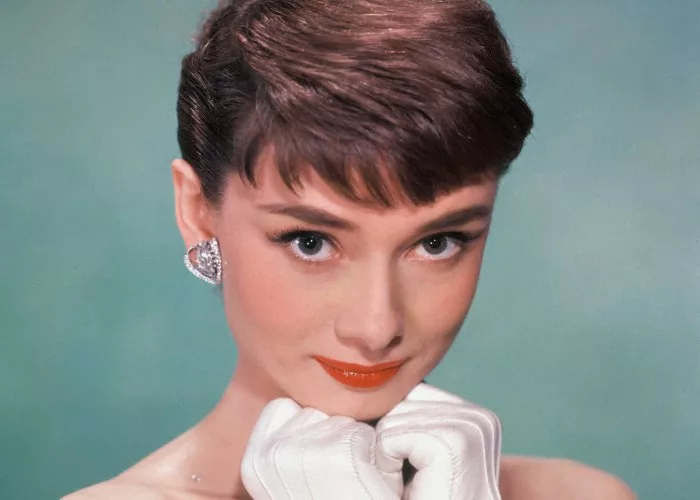Audrey Hepburn is a timeless icon of elegance, grace, and talent whose influence extends far beyond her illustrious career in film. Renowned for her distinctive beauty, impeccable style, and captivating performances, Hepburn remains a beloved figure in popular culture and a symbol of timeless sophistication. This celebrity introduction will explore Audrey Hepburn’s early life, rise to stardom, significant contributions to film and humanitarian causes, and enduring impact on fashion and society.
Early Life and Background
Audrey Kathleen Ruston was born on May 4, 1929, in Brussels, Belgium, to an English father and Dutch mother. Raised primarily in the Netherlands during her formative years, Hepburn experienced the hardships of World War II firsthand, enduring the German occupation and its aftermath. These experiences profoundly shaped her worldview and instilled in her a lifelong commitment to humanitarian causes.
Rise to Stardom
Audrey Hepburn’s journey to stardom began in the post-war era, when she pursued a career in ballet and modeling before transitioning to acting. Her breakthrough role came in the Broadway production of “Gigi” (1951), which garnered critical acclaim and caught the attention of Hollywood filmmakers. Hepburn’s star-making performance in the film adaptation of “Roman Holiday” (1953), directed by William Wyler, earned her an Academy Award for Best Actress and catapulted her to international fame.
Iconic Films and Collaborations
Throughout the 1950s and 1960s, Audrey Hepburn starred in a series of iconic films that solidified her status as a Hollywood legend. Some of her most memorable performances include:
“Breakfast at Tiffany’s” (1961): Hepburn’s portrayal of Holly Golightly, a stylish and enigmatic socialite, remains one of her most iconic roles and a defining moment in her career.
“Sabrina” (1954): Hepburn starred opposite Humphrey Bogart and William Holden in this romantic comedy directed by Billy Wilder, showcasing her charm and charisma.
“My Fair Lady” (1964): Hepburn received critical acclaim for her role as Eliza Doolittle in the film adaptation of the Broadway musical, earning another Academy Award nomination.
Style and Fashion Icon
Audrey Hepburn’s influence on fashion is indelible, characterized by her signature look of classic elegance and understated glamour. Her collaboration with designer Hubert de Givenchy resulted in iconic fashion moments, including the black dress she wore in “Breakfast at Tiffany’s,” which became synonymous with timeless style. Hepburn’s influence continues to resonate in the world of fashion, inspiring generations of designers and fashion enthusiasts.
Humanitarian Work and Philanthropy
Beyond her achievements in film and fashion, Audrey Hepburn was deeply committed to humanitarian causes throughout her life. She served as a Goodwill Ambassador for UNICEF (United Nations International Children’s Emergency Fund) and traveled extensively to advocate for children’s rights and humanitarian aid. Hepburn’s dedication to philanthropy earned her the Presidential Medal of Freedom in recognition of her humanitarian efforts.
Personal Life and Legacy
Despite her global fame, Audrey Hepburn maintained a relatively private personal life focused on family and philanthropy. She married actor Mel Ferrer in 1954 and later had two children. Hepburn’s enduring legacy is marked by her compassion, humility, and unwavering commitment to making a positive impact on the world.
Enduring Impact and Cultural Legacy
Audrey Hepburn’s cultural legacy transcends generations, resonating with audiences worldwide as a symbol of grace, compassion, and resilience. Her timeless beauty, impeccable style, and unforgettable performances continue to inspire admiration and reverence, cementing her status as an enduring icon of film and fashion.
Conclusion
In conclusion, Audrey Hepburn remains a cherished and revered figure in the annals of Hollywood history, celebrated for her exceptional talent, enduring beauty, and profound humanitarianism. From her transformative performances on screen to her advocacy for children’s rights off screen, Hepburn’s legacy is characterized by grace, elegance, and a deep sense of empathy. Her influence continues to inspire and captivate audiences, reaffirming her status as one of the most beloved and enduring icons of the silver screen. Audrey Hepburn’s timeless appeal transcends the boundaries of time and culture, embodying the essence of enduring beauty and humanity.
Related Topics:
Celebrity Introduction: Christopher Nolan
A Famous Multitalented Actress – Milla Jovovich

